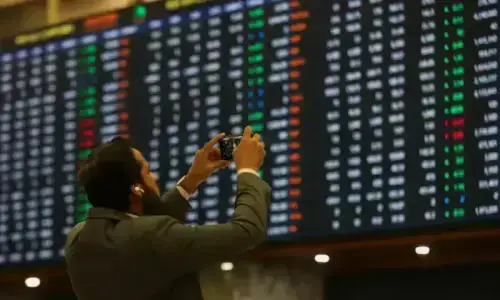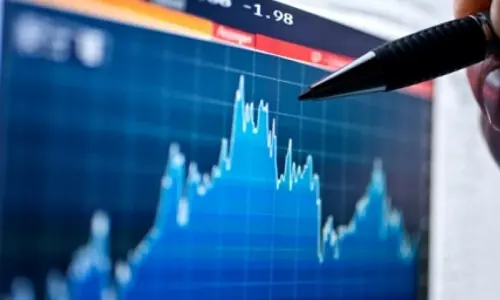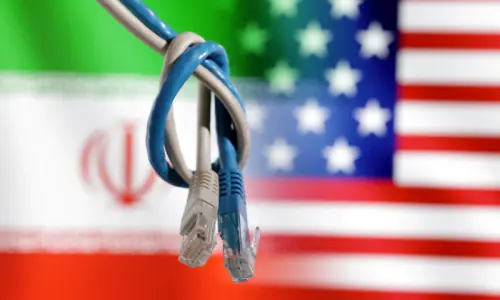
STOCKHOLM: The euro crisis is biting Sweden, but for senior government officials like Thomas Olofsson there is cautious confidence the economy has the tools to fend off the worst of a gathering economic storm.
“In the corridors of government there is not so much concern on our own behalf,” said Olofsson, who is head of debt management funding at the National Debt Office.
“But one way or another, it's (the euro zone crisis) an ugly thing to look at.”
This could be mistaken for complacency. But Sweden hopes it can trump any deepening euro angst with competitive advantages that should be the envy of embattled euro zone nations—a floating currency, a budget surplus, and low public debt.
It is an example of the resilience of the Nordic region's biggest economy, outside the euro zone itself but in the European Union, that it retains a triple A credit ratings.
Looking at the potential for more trouble from the euro zone, Olofsson said he had learnt from experience that you cannot be certain what to expect.
“So the lesson is that Sweden needs to be flexible.”
Ever since Sweden's 1992 economic implosion, which forced the government to take over several major banks after a housing bubble burst, governments have undertaken reforms to avoid similar crises, and Sweden weathered the 2008-2009 global crunch better than most.
“To be able to survive in this competitive age, you need...better education, better conditions for entrepreneurs and investors,” Prime Minister Fredrik Reinfeldt told Reuters.
“We have been doing this for over 20 years.”
There are risks to the country, including Sweden's reliance on European export markets and Sweden's relatively illiquid debt and currency markets that could spark sharp market fluctuations. And the slowdown in the vast neighbouring euro zone is already being felt.
Swedish industrial orders suffered their steepest fall in two and half years in April, falling nine per cent on the year. Swedish growth is still way down on its four per cent of 2011.
The impact of an apocalyptic euro collapse, of course, would be anybody's guess. But the country is seen resilient to two other euro zone scenarios—a contained Greek euro exit or ongoing problems with Spain and Italy that spark a deepening regional recession.
Part of the reason is Sweden's role as a global player.
“As long as global trade holds up, Sweden will be fine,” said Arne Karlsson, chairman of Swedish private equity firm Ratos.
“Nordic companies are generally very productive. They have increased productivity to fend off challenges from China and Latin America.”
Home to blue-chip companies like truck maker Volvo, bearings maker SKF and fashion chain Hennes & Mauritz, Sweden grew 0.8 per cent in the first quarter, one of the strongest of any European economy.
Sweden's sovereign debt is only about 38 per cent of GDP. That compares with more than 80 per cent for fiscally responsible poster child Germany. Norway's GDP grew 1.1 per cent, excluding the lucrative oil sector, in the first quarter.
It all means the two economies have room to boost the economy is a regional recession deepens. The Swedish central bank has room to lower rates, and two deputy governors are already pressing for cuts. Last year's budget surplus gives the government fiscal wiggle room.
“Plan B is to borrow more,” Olofsson.
Safe haven strains?
Investors already see Sweden as a relative safe haven. The yield on Sweden's benchmark 10-year government bond has hit record lows in recent months, in part driven by an increasing flight to quality.
The Swedish crown has strengthened 10 per cent against the euro since 2010, although it has been relatively steady this year, virtually unchanged since January. Earlier this year the Norwegian crown hit a nine-year high against the euro.
Swedish government officials expect any euro zone slow down to hit the crown, with about half of Sweden's economy dependent on exports. In the last 2008-2009 global crunch, it steadily weakened, giving export an important boost, before then strengthening in 2011.
“We had to lay off some 2,000 workers then,” said Karlsson, referring to the slowdown in 2008-2009.
“We did some calculations and found that if the crown had stayed at the same value we would have lost between 6,000 and 8,000 jobs.”
But any safe haven status could be a double-edged sword.
Some analysts worry a flight to quality could see Sweden and Norway see a sharp rise is their currency, straining competitiveness and forcing them to look at some kind of a cap on currency appreciation, like Switzerland.
"Even if the crown normally weakens in turbulent times, like it did in 2008, it will be imprudent to assume that this would be the case if the turmoil around the euro accelerate," said Elisabeth Holvik, chief analyst at Sparebank 1 Gruppen.
A Reuters poll showed this month that Scandinavian currencies would resume their steady appreciation over the coming year.
The region's relatively small debt and currency markets could be subject to sharp fluctuations.
"Lack of liquidity in the markets could be the biggest risk for the Nordics," said Daniel Morris, global market strategist at J P Morgan Asset Management.
"Sweden's biggest issue is that its public debt is not big enough. It is a safe haven, but not a useful safe haven."





























